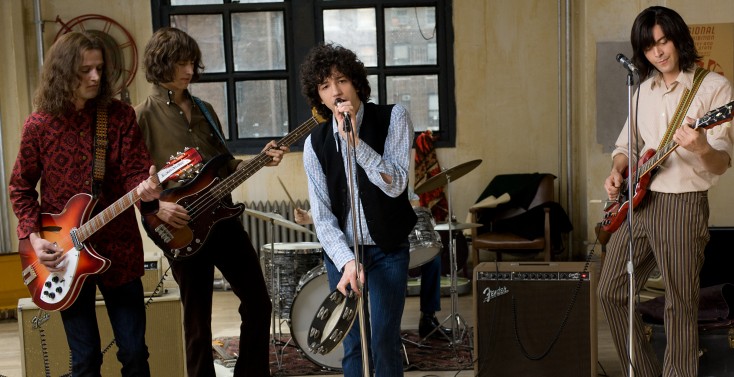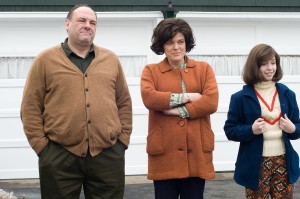Front Row Features Film Critic
Director/writer David Chase’s affectionate ode to a fictional 1960s garage band is the first thing the creator of HBO’s “The Sopranos” has done since that landmark series went off the air five years ago. A teen-centered coming-of-age tale without a single murder, made man or goomah in sight is not what anyone may have expected from the man who gave new meaning to “family” entertainment, but Chase’s first feature film has enough good beats and genuine soul to be a hit.
Chase’s return to New Jersey focuses on suburban teen Douglas (John Magaro), whose musical horizons are expanded by the British Invasion of bands on American radio circa 1964. After a clever TV-screen opening that morphs the Emergency Broadcast System’s test buzzer into the opening riff of “Satisfaction,” Doug’s likable kid sister Evelyn (Meg Guzulescu) sets things up by pointing out that the movie is not about the Rolling Stones. “Like most bands, you’ve never heard of them,” she says about her brother’s basement-party wonders.
Douglas gains some much-needed self confidence after emerging from behind his drum kit to become lead singer after nailing a performance of “Time Is On My Side.” From there, the movie becomes as much about strained group dynamics among the delusionally optimistic band members as it is about Douglas’ relationships with his parents-who-just-don’t-understand and his eventual girlfriend Grace.
Bella Heathcote shines as Grace, Douglas’ not quite angelic object of desire. Former Tony Soprano James Gandolfini is gruffly endearing as his generation-gap antagonistic father, who derides Douglas’ clothes, hair, politics and dreams of making it in the music biz.
Jack Huston is the arrogant Eugene, whose bitterness about rightfully being replaced as the group’s lead singer leads to an awkward ouster. Tactlessly direct guitarist Wells (Will Brill), whose suggested band name The Lord Byrons is roundly rejected, is too honest about Grace’s promiscuous past for his own good. When Douglas reacts with less than Summer-of-Love cool to that news, Grace puts him in his place by saying “you were in high school, and you still are.”
Grace’s rebellious older sister Joy (Dominique McElligott) embodies the era’s counterculture by rejecting her wealthy parents’ lifestyle, moving to a dump in the city and becoming a self-indulgent struggling artist. Although she’s only a tangential character, her story arc is the movie’s most melodramatic.
Roughly spanning the years between Kennedy assassinations, Douglas’ transformative episodic journey takes him from clean-cut ditch digger to Cuban-heeled hipster to vaguely disillusioned drifter. The movie’s killer classic-rock soundtrack, curated by E Streeter Steven Van Zandt, includes songs by groups including The Beatles, The Rolling Stones, The Kinks, Bo Diddley and numerous others that enhance the movie without overwhelming it.
The film’s final scene may be its finest movie moment, a solo dancing-in-the-street performance that is touchingly symbolic, elegantly simple and unforgettable. It’s almost enough to make you really believe that rock and roll will never die.





